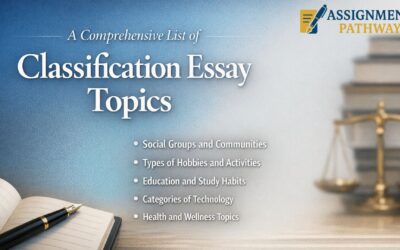Reflective Assignment Writing Made Simple for Students

Writing reflective assignments can seem strange if you’re used to essays or reports. Instead of only citing others, you’re asked to think about your experience, feelings, and growth how things you learned changed you or might change you. It doesn’t have to be hard with a good plan and some helpful ideas, you can write reflective assignments with clarity, meaning, and confidence. Assignment Help London, through Assignment Pathway, is always there to guide you every step of the way.
What Is Reflective Writing & Why Professors Give It?
Reflective writing is about looking back at an experience (a learning moment, a project, a tutorial, or some challenge), thinking about what you did, how you felt, what you learned, and what you would do differently next time. It’s not just description professors expect you to analyse, question, and connect things.
Professors assign reflective tasks because they want you not just to know content, but to become a better learner: to see your own strengths and weaknesses; to make meaning out of practical experiences; to develop skills like self-awareness, critical thinking, and ability to apply theory to practice.
Step-by-Step: How to Write a Reflective Assignment Made Simple?
Here’s a guide you can follow. If any part feels confusing, you can always use Assignment Help London at Assignment Pathway to get feedback or support.
1. Pick a Clear Experience & Focus
- Choose something meaningful: a project, a group task, a lecture, maybe a challenge you faced. The more real and specific, the better.
- Be honest. Reflective writing works best when you authenticate your feelings, reactions. Don’t just say what you think the professor wants to hear.
- Decide your focus: don’t try to reflect on everything. Maybe you focus on teamwork, maybe communication, maybe feedback you received. A clear focus helps your writing stay strong and coherent.
2. Describe & Set the Scene
- Start by describing the event or experience: what happened, when, who was involved, what your role was.
- Use enough detail that the reader understands why it mattered. For example, “We had a group project where deadlines clashed, and I felt frustrated because…” rather than “We did a group project.”
- Also describe how you felt during the experience confused, proud, upset, excited whatever is real. Your feelings are important.
3. Analyze, Ask “Why” & “How”
- Don’t just describe ask why things happened the way they did. What caused things to go well (or poorly)? What choices did you make? Did you have assumptions? Could you have done something differently?
- Connect the experience to theory, class readings, or relevant frameworks. If your course talked about leadership, group dynamics, feedback loops, etc., use those ideas to analyse what happened. This shows professors you’re doing more than storytelling.
4. Reflect on Learning & Growth
- Think about what you learned about yourself: about your strengths, weaknesses, how you behave in groups, time-management, etc.
- Consider how this will affect you in the future. What would you do differently? How will you apply what you’ve learned in future tasks?
- Try to show development: maybe your first reaction was to avoid conflict, but you learned that speaking up respectfully helps. Showing that shift is powerful.
5. Structure & Write Clearly
- Use a simple structure:
Introduction (what you will reflect on, why it matters),
Body (description, analysis, learning),
Conclusion (summary of what you gained + how you’ll use it). - Use first person (“I”, “my”) since this is about you. But make sure you stay academic—not too casual or slangy.
- Be honest but balanced. You can discuss positive and negative parts: what went well, what didn’t. Professors appreciate insight, not perfection.
6. Revise & Polish
- Once you have a draft, leave it aside for a bit, if possible, then read it again. Fresh eyes help.
- Check clarity: are your ideas easy to follow? Does your reflection really show thinking, not just description?
- Proofread for grammar, spelling. Correct referencing if you used readings or theory.
- If you want someone experienced to review it (structure, insight, tone), Assignment Help London via Assignment Pathway has editing and revision services. They can help your reflective assignment look its best.
Common Mistakes & How to Avoid Them ?
Knowing what to avoid helps you do better:
- Too much description, too little reflection: don’t just tell what happened; focus on what it meant.
- Staying vague: “I felt bad” doesn’t teach much. Better: “I felt frustrated because deadlines were unclear, which made me realize I needed clearer communication.”
- Ignoring feedback or theory: tie your reflection to what you studied or feedback you got.
- Writing very casually or with slang: keep your tone reflective yet suitably formal.
If you ever worry you might be making these mistakes, reach out to Assignment Help London through Assignment Pathway. They help students refine their work and avoid pitfalls.
Why Use Assignment Pathway & Assignment Help London?
Doing reflective assignments well takes planning, honest thinking, and a clear structure. Sometimes, you hit blocks: maybe you don’t know how to analyse, maybe you’re unsure how to connect readings, or maybe your language feels weak. That’s where Assignment Help London with Assignment Pathway comes in.
- If you want feedback on your ideas, someone experienced can help you think more deeply.
- For structuring or organizing your assignment, Assignment Help London can guide you.
- For proofreading, refining your language, and polishing the final copy so it impresses your professor, Assignment Help London has services through Assignment Pathway.
They support thousands of students just like you who want to make their reflective assignments genuine, strong, and grade-worthy.
Quick Checklist Before You Submit
Here are things to check:
- Did I clearly describe the experience?
- Did I analyze “why” and “how”, not just “what”?
- Did I connect to theory / class content?
- Did I show what I learned and how I will apply that learning?
- Is the tone reflective yet suitably academic?
- Have I proofread and fixed errors?
If yes, you’re probably doing well. If unsure, Assignment Help London from Assignment Pathway can review your final draft you can feel confident when you click submit.
Final Thoughts
Reflective writing doesn’t have to be scary. It’s really an opportunity: to think about your journey, to show your growth, and to integrate what you learn with who you are. Follow this simple plan pick a good experience, describe it, analyse it, reflect on growth, write clearly, revise carefully and your reflective assignment will be meaningful and strong.
Whenever you need help, remember Assignment Help London through Assignment Pathway is there to help you make your work better and your learning deeper. You’ve got what it takes to write a reflective assignment that you feel proud of.






